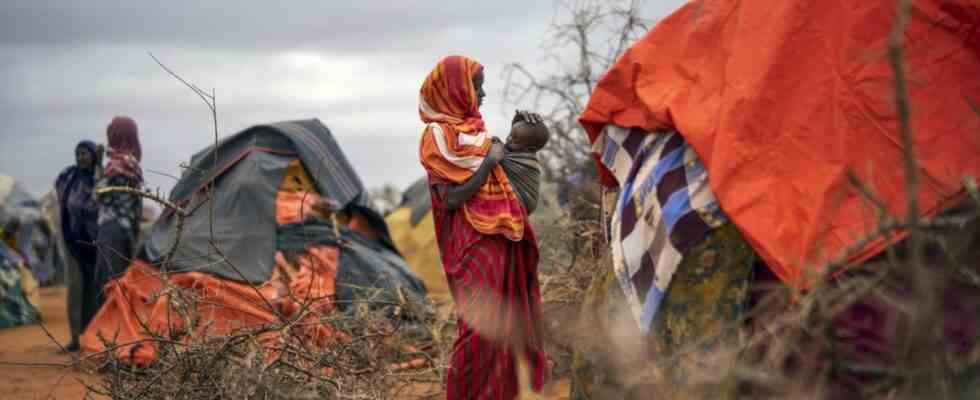Charles Michel speaks of partnership, trust and fairness. It is about more solidarity and cooperation. The President of the European Council is sitting in one of the first rounds of talks at the Security Conference (Siko) on Friday morning. The topic is “Recalibrating the compass: South-North cooperation”. And Michel hardly omits a catchphrase to emphasize how much Europeans now care about reaching out to the poorer countries of the Global South. It is a central message that should come from the three days in Munich.
Never before in the history of Siko have the developing countries been so present and represented in such large numbers. Even more high-level officials would have attended had the African Union not held its General Assembly in Ethiopia this weekend. But even so, it is striking in which prominent places members of the government from poorer countries are given a stage in Munich.
There is no harm in having many friends in the world
The West’s new charm offensive in Africa, Asia and Latin America began with the war in Ukraine. Europeans and North Americans became aware of how much influence Russia and China have gained there in recent years. Since then, the fight for influence has flared up again, because it doesn’t hurt to have as many friends as possible in the world. Federal Chancellor Olaf Scholz invited the heads of government from Senegal, South Africa, India, Indonesia and Argentina as envoys from their continents to the summit of the seven major industrialized countries (G7) in the Bavarian Hotel Schloss Elmau.
At the world climate conference in Egypt, the discussion about compensation for losses and damage caused by extreme weather came on the agenda for the first time, which the USA and the European Union had previously strictly rejected. And Charles Michel emphasized on Friday in the Hotel Bayerischer Hof that the EU supports the African Union’s request to be included in the influential G20 group. Three of many friendship offers. And now Munich.
On the one hand, the countries charmed in this way enjoy the new attention. On the other hand, they have tangible demands. And are also a bit resentful. Nana Akufo-Addo, President of Ghana, who is sitting across from Michel, replies to Michel’s attempts to flirt: He hears the word solidarity. “During the Corona pandemic we didn’t see this solidarity, we Africans were left on our own.” The fact that they hardly had access to vaccines was a big problem. Now what is needed above all is the political will to close the gap between rich and poor, Akufo-Addo demands.
The financial situation of many countries in the South after the pandemic, inflation and rising prices for energy and food as well as an intensification of the climate crisis is worrying. In its 2022 annual report, the International Monetary Fund (IMF) writes: “Around 60 percent of low-income developing countries are at high risk of over-indebtedness or are already over-indebted.” The economic shocks caused by the Ukraine war have exacerbated these problems. Kristalina Georgieva, IMF Director, who, alongside Bill Gates, is completing the round of talks in Munich organized by his foundation, points out that these economic problems also affect the issue of security. “An unjust world without fairness is an unsafe place,” explains Georgieva.
The countries of the South not only want aid payments, but also a reform of the World Bank
Despite the tight budgetary situation in Europe and North America, there are new aid programs. For example, for the so-called partnerships for a just energy transition (JETP) with South Africa, Indonesia and Vietnam, which are intended to promote the phase-out of coal there. Billions are flowing, and talks are underway with other countries such as India and Senegal. Last week, Germany, Belgium, Italy and Sweden assumed Somalia’s debt to the International Fund for Agricultural Development (IFAD). The East African country experiences the fifth rainy season without rain, half of the eight million inhabitants are dependent on humanitarian aid. By paying the 9.5 million euros, Somalia can again be supported by Ifad, which primarily promotes smallholder, sustainable agriculture.
But the countries of the South no longer want to be satisfied with aid payments alone. They target the international financial system, the foundations of which were laid after World War II. At a time when many of today’s independent countries, for example in Africa, didn’t even exist. Ghana’s President Akufo-Addo or Barbados’ Prime Minister Mia Mottley are calling for a comprehensive reform of the IMF or the World Bank so that developing countries can obtain low-interest loans more easily. For example, when they take measures to protect the climate or adapt to climate change, when they leave fossil fuels in the ground or when they protect their rainforests. The richer countries should provide their special drawing rights, a kind of currency reserve, as guarantees. Mottley is also expected in Munich this weekend.
Her special envoy for climate finance, Avinash Persaud, explained in advance: “The climate crisis and many other crises are all windows to the same problem – that of poverty and inequality.” The financial problem in many countries is one of the reasons why the world is moving towards 1.5 degrees Celsius global warming.
The largest shareholders of the World Bank, the economically strongest states with the USA at the top, are also willing to compromise here. At the request of Germany, the USA and other western countries, the World Bank presented a roadmap to reform itself. Last week, President David Malpass announced his early resignation in June, he had been appointed by US President Donald Trump and had irritated with ambiguous statements about man-made climate change. Since the United States traditionally nominates the World Bank President, Malpass’s resignation gives the Biden government the opportunity to put a man or woman at the head of the largest development bank who could credibly trim the institute for climate protection. And meets the demands of the South for significantly more money to flow.

